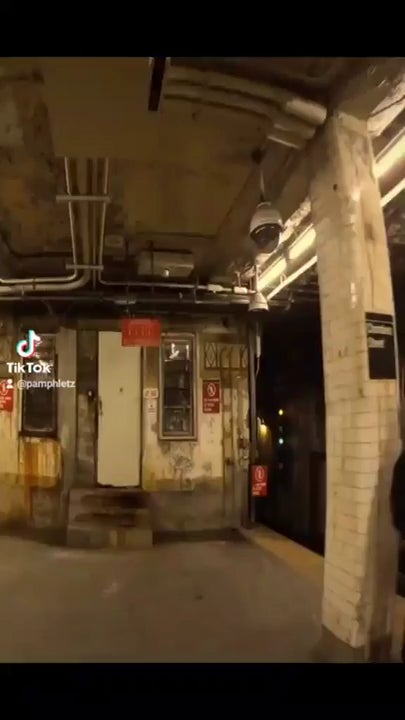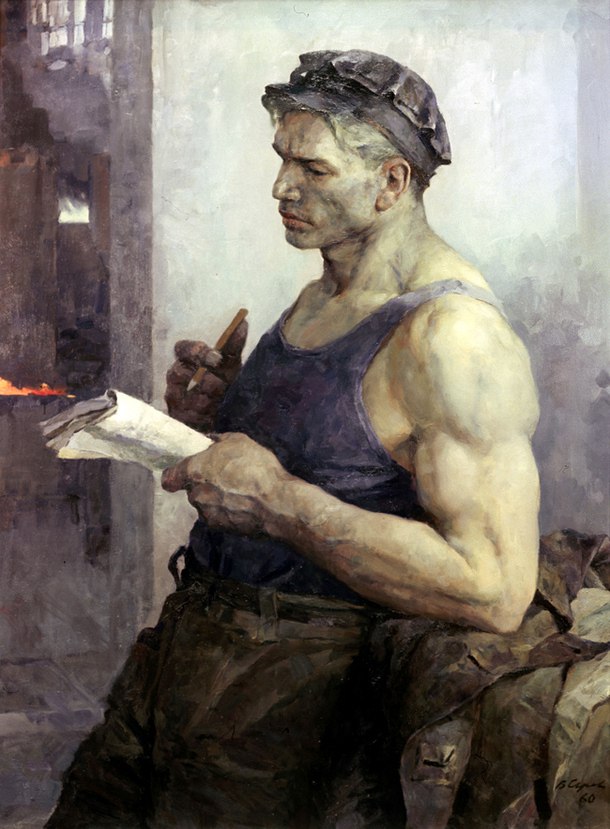“Muh beautiful democratic poverty vs genocidal authoritarian gubbermint improving infrastructure and lives”
Cue that quote about “security” and “freedom”
“In order to ensure the security and continuing stability, the Republic will be reorganized into the first Galactic Empire! For a safe and secure society!”
Oops, wrong quote
And yet somehow more correct
Quote that was, in fact, totally deformed and never came from anyone with a coherent political philosophy
Yup. Libs still love to repeat it like a magical incantation
now repost the same video but label it japan or south korea or another honorary aryan nation
Bonus points: label the shitty subway as “Moscow” and watch dummies gobble it up
Literally just said the same thing in the reddit thread, great minds something something
The copium veins are very rich here. Good prospecting!
Can I just say that I think it’s fucking lame China makes you go through a ticket gate or pay at all to use transit? It’s infrastructure, not an attraction. Trains and metro shouldn’t be profitable, the same way a bridge isn’t profitable, or a side walk isn’t profitable. The profit is profit to the country and riders. Even the DPRK does this. It doesn’t matter how cheap it is, it’s anti-social design. I shouldn’t be in a situation where I have to worry about entitlement to use a train or be funnelled through ticket gates as part of my commute.
True, there are a lot of things that could definitely be better in China. My bet on the reason why they have train tickets is that the strategy for China’s rapid development currently is to emulate rich capitalist countries. Authorities in charge probably thought that if most rich countries have paid public transportation then they must have too. I am confident that eventually, people will get involved and pass complete free transportation through legislation.
I doubt that’s it, I feel like it’ll be free once it’s highly developed and abundant. Right now, it’s still limited and still developing, I can understand why people still have to pay if that’s the case. The best they can do is try to make it as cheap as possible.
The vast majority of public transportation in China is subsidized by the government and the fares paid by passengers are very cheap. In the past, some high-fare private buses operated in suburban and rural areas, but these areas are now covered by cheap public transportation. Public transportation charges a certain amount of money in order to make public transportation available to those who need it. Every day during rush hour, China’s subways and buses are packed with people. It was also extremely difficult to get a train ticket for the Chinese New Year every year when rail transportation was not developed in China ten years ago.
The fare price doesn’t factor into my dissatisfaction.
Normally it is nice that part of the funding can come from those that use the service rather than everyone, like how road maintenance is in part paid by car drivers. In the case of public transit, I think this service is too widely used, and too much of a social good to position as an alternative to cars or planes.
Everyone has to travel, and everyone should be empowered to travel, therefore the government should facilitate it. My problem isn’t the cost but the social messaging of telling riders their entitlement to public transport is dependant on a transaction and has to be validated. If they want to use their own alternative they can pay for those, be they taxi, private buses or their own cars.
And this goes even while the network is being built and capacity is being expanded. If the road is congested, I’ll have to queue and arrive later. If the park is overcrowded, I cannot use the park. To my individual experience of either congested roads or crowded parks, payment doesn’t factor. The city understands that the demand isn’t being met and they will when they can provide more parks and (de facto) road capacity.
I don’t think peak transit usage would substantially increase if ticket gates were removed. But I do think it would positively affect people’s perception of their country’s accessibility, off-peak transit usage would increase, there would be less anxiety, it would encourage more day-trips to new areas that would benefit from increased tourism spending.
“I don’t think peak transit usage would substantially increase if ticket gates were removed.” This is just what you think, and my suggestion is to come to bus and subway stations in some of China’s major cities at 8 a.m. on Monday. . The government can’t just expand parks and widen roads at will, unless you think the government can remove buildings around them at will. The government can’t increase public transportation capacity at will, and the construction of subways and high speed trains can’t be increased at will. Even buses are affected by the number of drivers, the number of buses, and policies. Finally, subsidies for public transportation essentially come from taxes. As the Chinese proverb says, “the wool comes from the sheep’s back,” increased government spending means higher taxes.
This is just what you think, and my suggestion is to come to bus and subway stations in some of China’s major cities at 8 a.m. on Monday.
Yes, it’s just what I think and I don’t have data to back it up right now. But it’s based on simple logic. If taking transit is a bad experience, then people don’t want to do it even if it’s free. Right now during peak, it’s a bad experience. During off-peak, it isn’t a bad experience, so people will want to do it. The people who are already taking transit during peak times despite it being a bad experience are doing so because they have to get to work, so nothing changes for them.
The government can’t just expand parks and widen roads at will
But even if it’s insufficient, you don’t buy a ticket to go to the park. There is a problem and the city will try to fix it within their means.
Even buses are affected by the number of drivers, the number of buses, and policies.
Everyone choosing to use the bus would improve road capacity and therefore bus-logistics. In my opinion, the discriminating factor should be the quality of the experience, not the fare.
Finally, subsidies for public transportation essentially come from taxes.
This is what I want. Transit is communal so it should be paid communally.
In 2013 my city made public transportation free for seniors, a move that greatly increased bus congestion during peak traffic times. Banning free bus rides for seniors during rush hour was once a popular topic of discussion in the newspapers. Most people who commute via public transportation spend as little as the cost of a movie a month on transportation, so people who drive themselves to work are not driving themselves to work because of the cost of public transportation, but because public transportation is too slow or for other reasons. So these people are not going to take public transportation just because it’s free. So it won’t ease the traffic congestion. Finally, What you want is meaningless, it changes nothing
average liberal sub
The downvoting lib is back.
When are you going to get it through your head that your downvotes mean exactly nothing? You’re just wasting your time downvoting us for no reason. I mean, if you want to, go ahead, but I think there are much more productive ways to use your time.
the lib has no life, but it is normal to draw downvoters as the site gains more users and federations.
If I get even one downvote I will cry
I’m sorry, I had to do it 😔
😢
NOOOOOOOOOOOO
Everyone is so mean 2 me :(














